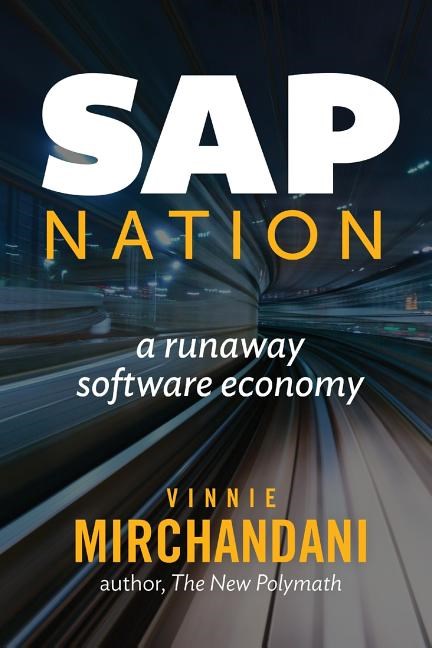
SAP Nation: a runaway software economy
PRINT ON DEMAND— Shipping will be delayed 1-6 weeks for printing
(Depends on publisher)
(Depends on publisher)
From its humble beginnings in Germany, SAP skyrocketed to become a global powerhouse and the technology backbone for tens of thousands of enterprises. The economy around it grew even faster, and "SAP Nation" now approaches the GDP of Ireland in size. This book documents both trajectories, based on decades of research and interviews of hundreds of customers, market analysts and competitors.
| Quantity | Price | Discount |
|---|---|---|
| List Price | $19.95 |
Non-returnable discount pricing
$19.95
Book Information
| Publisher: | Deal Architect Inc |
|---|---|
| Publish Date: | 12/05/2014 |
| Pages: | 352 |
| ISBN-13: | 9780990929611 |
| ISBN-10: | 0990929612 |
| Language: | English |
Full Description
From its humble beginnings in Germany, SAP skyrocketed to become a global powerhouse and the technology backbone for tens of thousands of enterprises. The economy around it grew even faster, and "SAP Nation" now approaches the GDP of Ireland in size. This book documents both trajectories, based on decades of research and interviews of hundreds of customers, market analysts and competitors. SAP's influence has declined in the last decade, as enterprises invest in cloud, social, analytical and mobile technologies and in custom development of "systems of advantage" in their products, channels and business models. Yet, shockingly, customer spending in SAP Nation remains stubbornly high. The model in the book estimates post-recession investment at more than one trillion dollars (yes!). This book brings out loudly the voice of SAP customers as they cope with this runaway economy. Twenty-five case studies showcase a spectrum of strategies - some are "ring fencing" SAP with Workday, others are switching maintenance to Rimini Street, yet others are in-sourcing, while still others are evaluating newer SAP products like HANA and acquisitions like Concur. Part root cause analysis and part strategy manual, this book is a must-read for anyone with interest in SAP - as customer, employee, partner, investor or competitor. It is a fast-paced look at decades of what SAP has done well, and what it could have done better. Executives everywhere, even those in non-SAP settings, will benefit from the strategies described in the book to migrate inefficient back-office IT dollars to front-office innovation.



